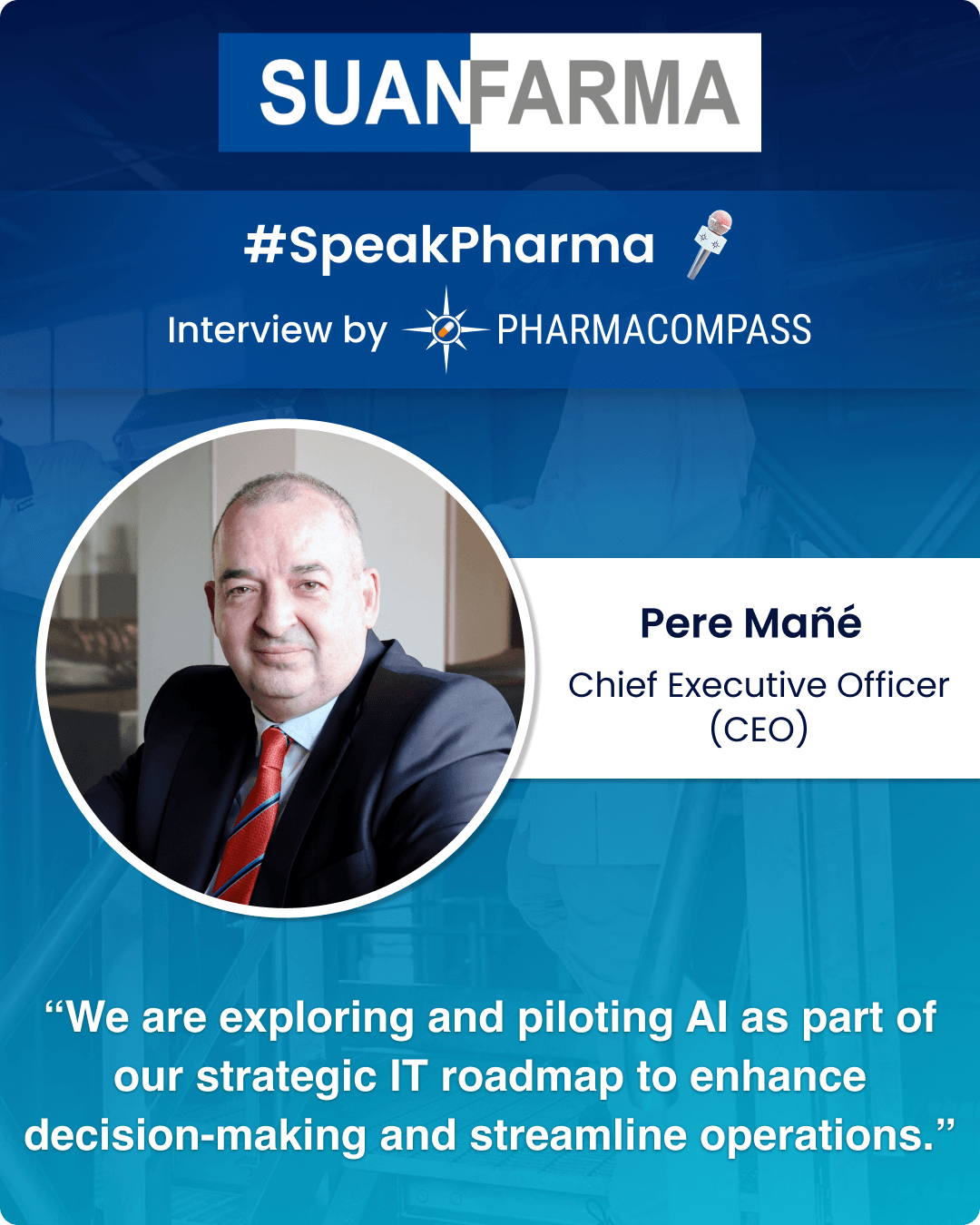
This week, Phispers brings you the FY18 user fee schedule under GDUFA II, posted by the USFDA, with significantly higher fee for several applications. There is news on an old drug getting approved for treatment of levodopa-induced dyskinesia in patients with Parkinson’s disease, and a new study revealed benefits of blood thinners — Xarelto and Brilinta. Meanwhile, Gilead acquired Kite Pharma to access a new kind of cancer therapy. Read on.
USFDA announces generic user fees for FY18;
ANDAs, APIs, devices to pay higher fee
This week, the US Food and Drug Administration (FDA) posted the FY18 user fee schedule for the Generic Drug User Fee Amendments. Under the new Generic Drug User Fee Amendments of 2017 (GDUFA II) applications to market generic drugs, known as abbreviated new drug applications (ANDAs), will see fee increases of more than US$ 100,000 — from US$ 70,480 in 2017 to US$ 171,823 in 2018.
The fees were set based on negotiations between the pharmaceutical industry and the USFDA as part of a new five-year reauthorization of the FDA user fee programs signed into law earlier this month.
In the fee schedule, a US$ 15,000 foreign differential applies to all non-US facilities, for both finished dosage form (FDF) and active pharmaceutical ingredients (API).
This is the first year when pure CMO (contract manufacturing organization) facilities will pay a ‘reduced’ facility fee — one-third of the fee for a non-CMO.
This year an ANDA holder fee, also known as program fee, was introduced. This fee has three tiers: entities that hold 20+ approved ANDAs, entities that hold six-19 approved ANDAs, and entities that hold one to five approved ANDAs. ANDAs pending approval are not added to this count, just as facilities that are only referenced in pending ANDAs are not subject to a facility fee.
|
GDUFA II fee for FY 2018 |
in US dollar |
|
One-time application fee |
|
|
ANDA |
171,823 |
|
DMF |
47,829 |
|
Recurring fee for facilities |
|
|
Domestic API facility |
45,367 |
|
Foreign API facility |
60,367 |
|
Domestic FDF facility |
211,087 |
|
Foreign FDF facility |
226,087 |
|
Domestic CMO facility |
70,362 |
|
Foreign CMO facility |
85,362 |
|
Recurring GDUFA program fee |
|
|
(20+ANDAs) Large size operation generic drug applicant program |
1,590,792 |
|
(6-19 ANDAs) Medium size operation drug applicant program |
636,317 |
|
(1-5 ANDAs) Small business generic drug applicant program |
159,079 |
The fee is applicable from October 1, 2017, until September 30, 2018.
Decades old drug — amantadine — wins FDA approval to treat dyskinesia in Parkinson’s
Adamas Pharmaceutical got the nod from the USFDA last week to sell its therapy ADS-5102 — an extended-release version of the generic amantadine. The agency approved it for treatment of a side effect (dyskinesia) caused by a commonly prescribed Parkinson’s drug — levodopa.
Amantadine was able to beat a placebo in significantly reducing the side effects of levodopa. This generic drug is already used off label for dyskinesia.
This is the first drug cleared by the FDA to control levodopa-induced dyskinesia (LID). According to Adamas, around 200,000 people in the US suffer from LID.
LID leads to involuntary movements, mostly non-rhythmic, purposeless and unpredictable, making life all the more difficult for a patient of Parkinson’s disease. The disease is progressive and debilitating, causing tremors, rigidity, extreme slowness of movement, impaired balance, and difficulties in swallowing and speaking.
After GSK, Novartis picks its chief digital officer from retail; Pfizer’s swanky new HQ
Last month, GlaxoSmithKline appointed former Walmart chief information officer — Karenann Terrell — as its chief digital and technology officer. And last week, Swiss drug major Novartis followed suit — it appointed Bertrand Bodson, who is currently the chief digital and marketing officer for Sainsbury’s Argos retail chain, as its new chief digital officer. Bodson will assume office on January 1, 2018.
These two appointments point to the growing challenges drug companies face from the digital world. For instance, mobile applications offer patients new ways to monitor their health. And clinicians increasingly communicate with their patients using the digital media. Bodson’s appointment is also an indication that Novartis intends to use technology for nearly everything — from drug discovery to interactions between clinicians and patients around the world. Bodson’s job also entails automating business processes.
Bodson holds a degree from the Harvard Business School. He has also co-founded the social network site — bragster.com.
Pfizer’s new HQ in New York: Pharma giant Pfizer has chosen the skyscraper — The Spiral — for its new headquarters in New York. The Spiral is a 1,005-foot-tall office tower in the Hudson Yards district of Manhattan’s Midtown West.
According to New York Post, Pfizer has taken up nearly 800,000 square feet of space in this building. The 65-story, 2.85-million square-foot building is designed by Danish architect Bjarke Ingels.
FDA approves first CAR-T therapy for cancer; Gilead bets big on it by acquiring Kite
California-headquartered biopharma company Gilead Sciences is acquiring Kite Pharma for US$ 11.9 billion. The acquisition points to Gilead’s increased focus on a new kind of cancer therapy, known as chimeric antegen receptor (CAR) T-cell therapy (or CAR-T)
According to Gilead, Kite is an industry leader in cell therapy — a treatment that uses the patient’s own immune cells to fight cancer. Kite’s most advanced CAR-T therapy candidate, axicabtagene ciloleucel (axi-cel), is currently under priority review by the USFDA. The FDA has set a target action date of November 29, 2017 under the Prescription Drug User Fee Act (PDUFA).
For Gilead, Kite could bring in the much-needed growth. Gilead has been witnessing falling sales of its hepatitis C treatments. It generates most of its sales from anti-infective therapies. Therefore, the acquisition will diversify Gilead’s portfolio. It will also boost Gilead’s emerging oncology drug franchise.
For the biotech sector, this acquisition is a big endorsement of the immuno-oncology segment. CAR-T inhibitors allow doctors to create a “personalized” drug tailored to each cancer patient by harvesting their T-cells and modifying them in a laboratory to make them more efficient at combating and killing cancer cells.
Though critics say Gilead has overpaid for Kite, Gilead’s CEO, John Milligan, justified the purchase. “It is certainly our hope that as we are able to drive down manufacturing costs, and as or if these indications broaden to larger patient populations, that we would be able to drive down the prices over time through manufacturing efficiency,” he said.
“CAR-T has the potential to become one of the most powerful anti-cancer agents for hematologic cancers,” Arie Belldegrun, president and CEO of Kite, said.
Just days after Gilead’s announcement of its acquisition, the FDA approved Novartis’ Kymriah (tisagenlecleucel), the first CAR-T gene therapy, for certain pediatric and young adult patients with a form of acute lymphoblastic leukemia (ALL).
The list price of Kymriah is US$ 475,000 for a one-time treatment.
Bayer-J&J, AZ post promising data on their blood thinners; AZ to
expand UK operations
At the annual meeting of the European Society of Cardiology held in Barcelona this week, studies brought to fore several benefits of blood thinners like Johnson & Johnson and Bayer’s Xarelto, and AstraZeneca’s Brilinta.
A study published in the New England Journal of Medicine revealed that the combination of a low dose of Xarelto and aspirin cut the risk of heart attacks by 14 percent, strokes by 42 percent, and death by 18 percent. Forty-one out of every 1,000 people who took the Xarelto-and-aspirin combo would be expected to have a heart attack, stroke, or heart-related death compared to 54 among those who got aspirin alone.
Next generation anticoagulants, such as Eliquis, had been giving Xarelto a run for its money.
Similarly, a sub-analysis from the Pegasus clinical trial, which first reported positive results in 2015, showed that AstraZeneca’s blood-thinner Brilinta cuts the risk of cardiovascular death by 29 percent in patients with a history of heart attacks who keep taking it beyond the standard 12-month initial period. The sub-analysis also showed a risk reduction of 20 percent in all causes of death.
The finding comes as a shot in the arm for AstraZeneca, which had suffered several clinical failures last year.
AstraZeneca to invest in UK facility: Meanwhile, AstraZeneca is making huge investments into its Macclesfield campus in England in order to ramp up production. This is Astra’s biggest manufacturing site. The investment — expected to run into tens of millions of pounds – is set to be announced soon.
This investment is likely to take investors by surprise. A month back, Astra’s CEO Pascal Soriot had said he is putting all capital investment decisions on hold due to the uncertainty around Brexit.
The decision comes amid calls for the UK government to do more to support the sector ahead of Brexit. Recently, drugmakers, including AstraZeneca, published a paper calling on the public sector to invest up to US$ 181 million (£140 million) in three new drug manufacturing “centers of excellence” to stimulate the industry and help reverse a long-term decline in UK’s drug exports.
The PharmaCompass Newsletter – Sign Up, Stay Ahead
Feedback, help us to improve. Click here
Image Credit : Money by 401(K) 2012 is licensed under CC BY 2.0
“ The article is based on the information available in public and which the author believes to be true. The author is not disseminating any information, which the author believes or knows, is confidential or in conflict with the privacy of any person. The views expressed or information supplied through this article is mere opinion and observation of the author. The author does not intend to defame, insult or, cause loss or damage to anyone, in any manner, through this article.”





